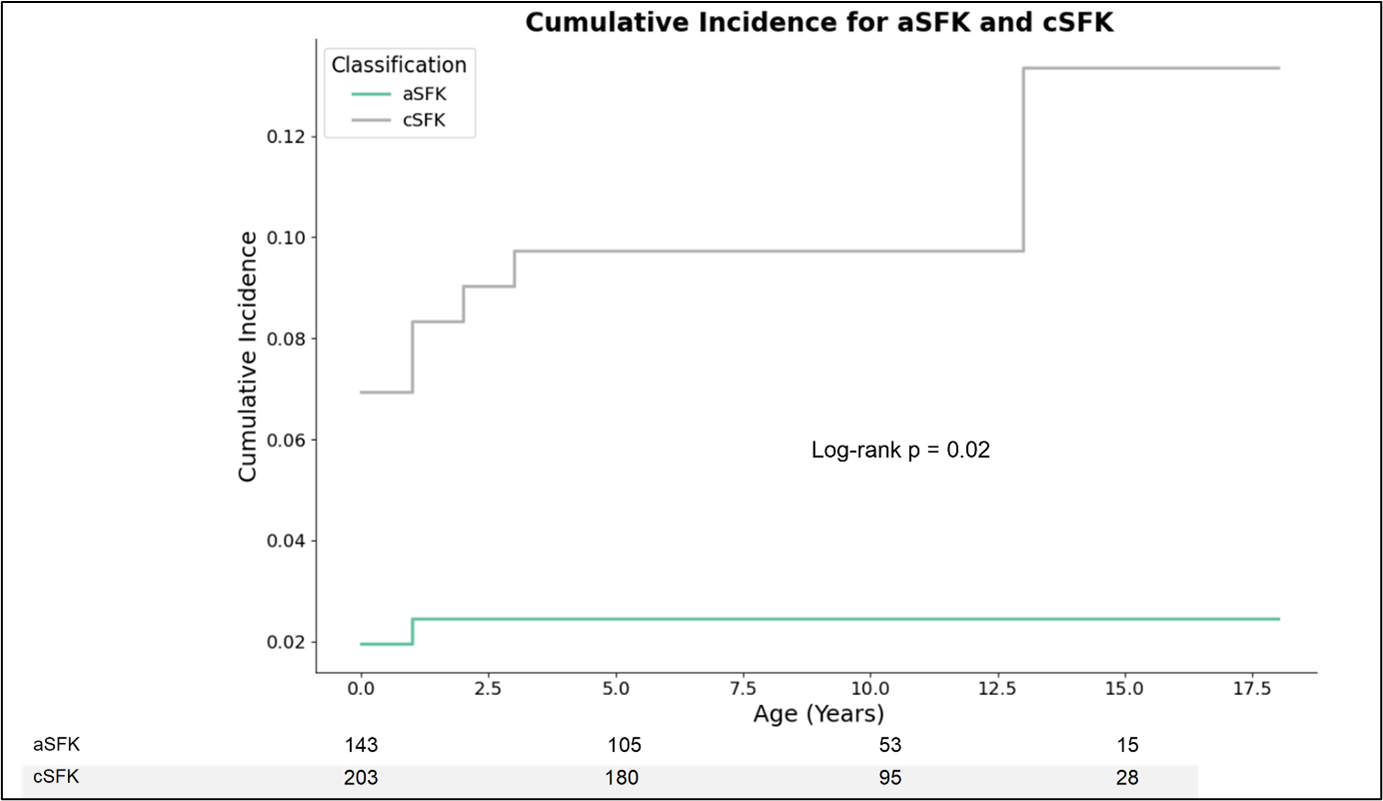Nephrology 2
Session: Nephrology 2
030 - Impact of Various Etiologies on Kidney-related Outcomes in Children With a Solitary Functioning Kidney
Sunday, April 27, 2025
8:30am - 10:45am HST
Publication Number: 30.5516
Sulaiman Abdullah, Taibah University - College of Medicine, Madina, Al Madinah, Saudi Arabia; Mona Subayyil. Alshabi, Children's Health, Medina, Al Madinah, Saudi Arabia; Ruba Nasser. Degriri, Children's Hospital & Medical Center, Al Madinah, Al Madinah, Saudi Arabia; AHMED ARABI. ALARABI, Minsty of health, King Salman bin Abdulaziz Medical City Madinah, Medina, Al Madinah, Saudi Arabia; Ibrahim Sandokji, Taibah University, Madinah, Al Madinah, Saudi Arabia
- SA
Sulaiman Abdullah, MBBS candidate (he/him/his)
Student
Taibah University - College of Medicine
Madina, Al Madinah, Saudi Arabia
Presenting Author(s)
Background: Children with a solitary functioning kidney (SFK) could be at risk of developing chronic kidney disease. However, research is limited on long-term kidney outcomes, particularly the effects of various etiologies.
Objective: We aimed to study the effects of various SFK etiologies on mortality rate, chronic kidney disease, and kidney failure.
Design/Methods: This was a longitudinal cohort study of children with congenital or acquired SFK. Descriptive, logistic regression, and survival analyses were performed to assess the risk of composite outcome development among various categories. The composite outcome consisted of all-cause mortality or kidney failure of 50%, defined by glomerular filtration rate or the initiation of kidney support therapies.
Results: We included 348 children with SFK: 144 (41%) with congenital SFK and 204 (59%) with acquired SFK, with a median follow-up of 22.9 months (IQR 2.4–52.5). Children with congenital SFK showed higher rates of composite outcome development than those with acquired SFK (10.4% vs. 2.5%, p = 0.002). Factors associated with composite outcome development included congenital SFK, younger age at diagnosis, and SFK caused by multicyclic dysplastic kidney disease (MCDK). In survival analyses, children with congenital SFK (log-rank p = 0.02) or SFK caused by MCDK (log-rank p = 0.01) showed a higher and earlier risk of developing the composite outcome.
Conclusion(s): Children with congenital SFK and those with MCDK showed higher risks for kidney failure and mortality compared to other etiologies. Targeted screening and early recognition are warranted.
Medical student status (the presenting author)
Student Status.pdf
Cumulative Incidence for Each Diagnosis
.png) Cumulative incidence curve comparing SFK etiologies in terms of composite outcome development (log-rank p = 0.01).
Cumulative incidence curve comparing SFK etiologies in terms of composite outcome development (log-rank p = 0.01).Cumulative Incidence for aSFK and cSFK
 Cumulative incidence curves comparing congenital vs. acquired SFK in terms of composite outcome development (log-rank p = 0.02).
Cumulative incidence curves comparing congenital vs. acquired SFK in terms of composite outcome development (log-rank p = 0.02).
